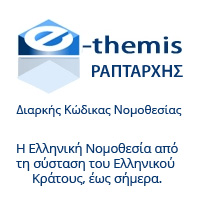5. GENDER EQUALITY IN EXTERNAL ACTIONS
The EU policy on the promotion of gender equality within the EU is closely linked to the work undertaken by the Union in third countries. Through all relevant policies under its external action, the EU can exercise significant influence in fostering gender equality and women’s empowerment worldwide. Candidate countries must fully embrace the fundamental principle of equality between women and men. Monitoring the transposition, implementation and enforcement of EU legislation in this area remains a priority of the enlargement process, which the EU supports financially. In the context of the European Neighbourhood Policy (ENP), the EU supports partner countries' efforts to promote gender equality. The ENP Action Plans set out a jointly agreed agenda of reform priorities and contain commitments of partner countries to engage in dialogue on related issues and to carry out policy and legislative reforms.
The EU remains committed to speedier achievement of the Millennium Development Goals, and to helping to attain the standards set by the Convention on the Elimination of all Forms of Discrimination against Women, as well as the objectives of the Beijing Platform of Action, and the Cairo Programme of Action, as foreseen in the EU Plan of Action on Gender Equality and Women's Empowerment in Development (2010-2015). The EU guidelines on violence against women and girls and combating all forms of discrimination against them provide guidance for conducting political dialogue and for taking action, where appropriate, in individual cases of women’s rights violation. The EU will continue to use its development policies to promote gender equality and women’s empowerment.
The EU will also actively cooperate with international organisations working on gender equality such as the ILO, the OECD, the UN and the African Union to produce synergies and foster women’s empowerment, as well as with the new UN Entity for Gender Equality, UN WOMEN, and will support civil society participation, capacity building and advocacy on gender equality and women's empowerment.
The EU is also committed to protecting women in times of conflict and post-conflict, and to ensuring women’s full participation in conflict prevention, peace building and reconstruction processes, and actively implements the EU Comprehensive Approach to the United Nations Security Council Resolutions 1325 and 1820 on Women, Peace and Security. Gender considerations will also be further integrated into humanitarian aid.
The EU also integrates gender equality into its trade policy as part of a wider framework of sustainable development and encourages the effective application of the ILO’s core labour standards and its Decent Work Agenda, including in relation to non-discrimination, in its preferential trade agreements. The issue of gender equality is also addressed in the Sustainability Impact Assessments which are prepared to help guide negotiators in trade discussions.
Key actions
The Commission will:
- Monitor and support adherence to the Copenhagen criteria for accession to the EU in the field of equal treatment between women and men, and assist Western Balkan countries and Turkey with the transposition and enforcement of legislation.
- Implement the EU Plan of Action on Gender Equality and Women’s Empowerment in Development (2010-2015).
- Continue to encourage ENP partner countries to promote gender equality through regular policy dialogue, exchange of experience and by exploring possibilities for assistance under the European Neighbourhood and Partnership Instrument.
- Further integrate gender considerations into EU humanitarian aid.

